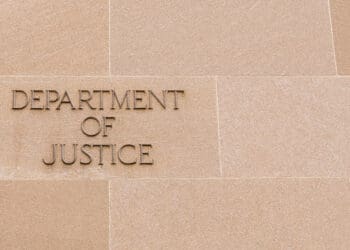Doing business in Nigeria presents manifold challenges. But in terms of hurdles to clear, the regulations imposed by the FCPA are easily the most significant. Abuja-based Uchechi Dibiaezue lays out the dance steps below.
Tap Compliance to Stave Off FCPA Violations
The lapses in governance and administration in Nigeria has created opportunities for systematic corruption and shapes the way business is done. It is now common place for businesses to be asked to pay bribes to obtain a government service. So multinational companies or their Nigerian subsidiaries that are not cautious become vulnerable, conform to the way business occurs in Nigeria and facilitate corruption. The antibribery provision of the Foreign Corrupt Practice Act (FCPA) 1977 makes it unlawful for U.S. corporations or any corporation that has issued securities trading on a U.S. exchange, or officers and agents acting on their behalf to pay bribes to Nigerian government officials.
Every year, breaches of the FCPA generate a huge volume of cases and investigations for both the Department of Justice (DOJ) and the Securities and Exchange Commission (SEC). The two agencies scrutinize everything, including acts carried out or decisions made by a Nigerian subsidiary or agent in they country. Access the latest joint agency FCPA resource guide here (PDF download). Therefore, the most important tool to prevent investigation or exposure to violation of the FCPA is to have an effective compliance program. Whilst doing business in Nigeria, it is easy to underestimate the importance of a compliance program. The challenge is that, without one, a company may potentially give out huge sums in bribes payments as bribery risks are numerous and may differ from sector to sector or industry to industry. However, developing policies and adopting strategies that identify the probable bribery risks and deal with misconduct is part of the commitment towards compliance.
Corruption Risk for Companies Operating in Nigeria
It is difficult doing business in Nigeria with its high corruption risk. The challenge is heightened further due to certain salient peculiarities. Though the country is a good investment hub with potentials across various sectors, there are a number of challenges that invite an FCPA violation. There is poor power supply, and you may find yourself in a situation where you need to pay a bribe to keep the lights on. In some regions there is inadequate security, and you may have to hire your own. There are also administrative delays in obtaining relevant permits and licenses, low prosecution of high profile public officials that breach anti-corruption laws and the unavoidable fact that companies frequently interact with government officials.
These issues provide huge opportunity for the offer or request and the giving or taking of bribes. In addition, it has become a lucrative source of additional income for the public officials who receive these bribes in order to reduce customs duties and tax charges, approve industry related permits and licenses, make available utilities such as light and water, grant government contracts etc. This situation in Nigeria continuously tests the ability of companies to comply with the FCPA. Not all bribe payments can be written off as facilitation payments or reasonable expenses. But an adequate response is to adopt certain key strategies that build and boost a well-functioning program that supports compliance with the FCPA.
Key Strategies to Assist Companies in Complying with the FCPA
Companies that breach the FCPA are not necessarily comprised of bad people who periodically engage in unethical behavior. Rather, these people may be working within a corporate environment that gives tacit approval of their misconduct through creative accounting and concealment to benefit the company’s business until someone (whether the company or an individual) is caught. In order to improve the internal business environment of a covered company, below is a list of steps that may be implemented in order to prevent potential FCPA violations:
- Management of companies should formulate and publish two key document: a code of ethics and a corporate policy against FCPA violations accessible by the workforce and the public. These key documents tend to notify government officials that the company is bound to adhere to a higher ethical standard.
- Any request for support of security personnel, such as police officers to be assigned to the company, should be channeled through the appropriate authorities with proper documentation.
- The company should avoid dealing with specific government officials on a regular basis rather approach the government office in charge of the service required as a preferred option.
- Any legal counsel engaged by a company must be conversant with the scope of the FCPA and the UK bribery Act of 2010 where the company has foreign directors and officers (British/US citizens).
- These individuals face greater potential for prosecution by their home government where complicit in acts of misconduct. However understanding the remit of the FCPA/Bribery Act is not included in the general curriculum for training lawyers in Nigeria.
- Top level staff of foreign companies that arrive from overseas must receive some training on the cultural/environment context in which the company operates. They should understand what is and is not customary in local practices. This type of training provides useful insight into the corruption risks companies in Nigeria face.
- Profit is the basis for investing in Nigeria, however attempting to dishonestly reduce the amount of assessed tax to be paid to the tax authorities must be avoided. The repercussion is potential FCPA violations if caught.
- Prior to an investment in the Nigerian market, companies must as part of the due diligence process carry out background checks on potential local investors/joint venture partners especially agents as the latter can create liabilities for potential FCPA violations.
- Make Google your friend. More regulatory agencies in Nigeria that approve the grant of permits and license are now disclosing the time frames for obtaining such approvals. Resources for these types of information can be obtained online here (though some useful information may be industry related). For a company using the Nigerian Ports, for example, a good resource can be obtained here (PDF download). Issues of taxation can be obtained here.
- Companies operating in Nigeria must have realistic goals and avoid situations where they pay out small bribes to fast track applications for government permits and licenses. Note that dealing with administrative processes in Nigeria can sometimes take a lot of time – it’s best to start early.
- Kidnapping of foreign personnel for ransom is a risk in Nigeria. But where ransom payments are made under duress to prevent physical harm or save a life, the situation must be handled with all discretion and delicacy. It must also be recorded properly and honestly. Note there are no FCPA liabilities to payment made under duress or extortion.
- Nigeria has a Public Procurement Act (PPA) 2007 and various states have their own public procurement law. Companies are encouraged to read and understand about the procurement process in Nigeria. There are available resources here (PDF download). Avoid procuring the services of an agent to bid for contracts and pay bribes to obtain government contracts. The procurement process is usually open to competitive bidding.
- The company must have established disciplinary procedures to address infraction of its policies against bribery of government officials, especially regarding the FCPA.
There should be a system for anonymous and confidential reporting to enable employees to speak up and report violations of the law and code of ethics committed by the colleagues and superiors within the company without fear of repercussion.
Conclusion
The above-mentioned steps are not exhaustive but only provide guidance on strategies that may be adopted to curtail a breach of the FCPA. It is difficult to predict what may happen, but preparedness is key. Equally important is the response on the part of a company when faced with misconduct arising from breach of its compliance program. If this happens, stay calm, investigate, and document your findings.





![FCPA Enforcement Is Changing; What Does It Mean for Compliance Programs? [Q&A]](https://www.corporatecomplianceinsights.com/wp-content/uploads/2025/02/doj-sign-on-building-350x250.jpg)








